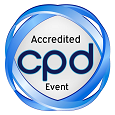
Stephen Tindal
Catalent, USA
Title: Accelerating preclinical development for poorly bioavailable compounds by assessing multiple oral technologies in parallel
Biography
Biography: Stephen Tindal
Abstract
During the pre-clinical stage of the drug development process, scientists often face a set of challenges to deliver the desired quality target product profile (QTPP), with the top three being bioavailability (usually solubility), API availability and speed of execution. It may be necessary to partner with a variety of different companies, each with specific technologies, expertise and approaches. There may be a reticence to commit to enabling technologies, as it may be easier to begin with simpler strategies, like powder in a bottle and to iterate (with follow on approaches) once more data is available. However, in-house approaches may satisfy a desire for speed, they also run the risk of burning time and resources if ultimately not successful, and this is likely given the increasing number of poorly soluble molecules. It is increasingly essential to examine and rank multiple delivery options in parallel, to collect data about the relative dose capability, PK enhancement and manufacturability in order to select drug candidates to advance to clinical phase I. This talk will provide an overview of a structured assessment and parallel formulation feasibility assessment approach that is designed to reveal the most suitable pathway to enhance bioavailability and accelerate development by: Understanding the classification of poorly bioavailable compounds using the developability classification system; Understanding how a structured and high throughput parallel screening approach can expedite preclinical development; and to learn how enabling technologies such as lipid based formulation, solid dispersion and particle size reduction can be applied.

